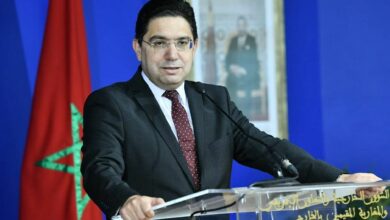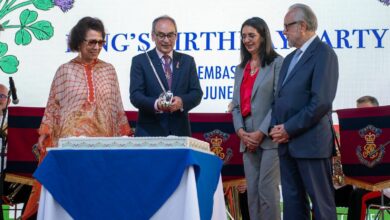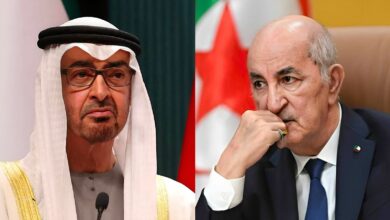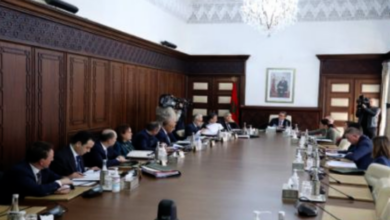Algerian Diplomacy in a Disinformation Dilemma: A Rwandan Rebuke Exposes the Fragility of the Military Regime
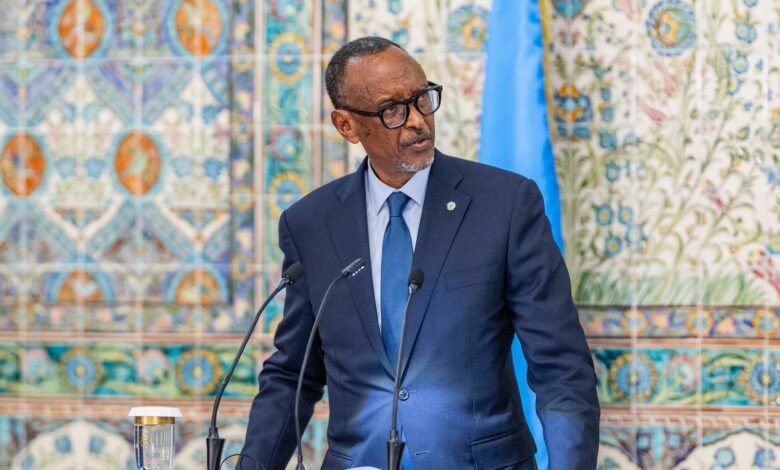
Aldar / Analysis
In a fresh display of the Algerian regime’s confusion and its inability to control its diplomatic narrative, Algeria received a harsh blow from Rwandan President Paul Kagame, who refuted claims—circulated in the media—about his support for the separatist Polisario Front during his official visit to Algeria.
While the Algerian regime tried to frame the visit as a diplomatic achievement reinforcing its stance on the Moroccan Sahara, the facts quickly dismantled these claims, once again exposing the deceptive tactics employed by Algeria’s official and semi-official media outlets—tactics serving agendas disconnected from the evolving African reality.
An Official Narrative Undone by Rwandan Transparency
In stark contrast to what was promoted by some Algerian platforms, President Kagame’s official statements—both during his press conference and in the official communiqué published on the Rwandan presidential website—made no reference, direct or indirect, to the Sahara issue or to any support for the Polisario. This strips away the veil from Algeria’s disinformation campaign, which aimed to drag Rwanda into a regional conflict that does not concern it.
President Kagame, a seasoned political and diplomatic figure, made a point of publishing his full speech on his country’s official presidential website. This proactive move aimed to refute attempts to misuse his name and simultaneously expose Algeria’s propaganda apparatus, which does not hesitate to exploit bilateral partnerships to fabricate hollow victories in a losing regional dispute.
Recordings Reveal the Truth: Algeria Falls into Its Own Trap
Ironically, the rebuke from Kigali was not limited to a clear clarification—Algeria’s own presidency fell into its own trap by publishing a video recording of the joint press conference. The footage clearly shows that the Rwandan president made no mention whatsoever of the Polisario. Nevertheless, Algerian media persisted in recycling a fabricated narrative that aligns with the regime’s entrenched hostility toward Morocco.
This discrepancy between media coverage and what was officially documented by Algerian and Rwandan institutions reflects a deep-rooted crisis of trust within the Algerian regime. It also highlights the absence of a mature diplomatic strategy capable of forging alliances based on mutual respect, rather than coercion and misinformation.
“X” Debunks the Lies: No Sahara Issue in Rwanda’s Agenda
Rwanda’s neutral position went beyond official speeches and press conferences. It also extended to a post by the Rwandan presidency on the platform “X,” which likewise made no mention of the Sahara issue. This precise communication strategy illustrates Rwanda’s balanced foreign policy, one that prioritizes regional interests and avoids entanglement in the agendas of politically and economically isolated nations.
Algeria Facing African Isolation
Experience has shown that Algeria now faces a new African reality in which alliances are built on solid economic and developmental foundations—far from separatist rhetoric and manipulative diplomacy. Algeria’s efforts to rally African partners to the Polisario’s camp have become outdated, as African nations—including Rwanda—increasingly shape their positions based on sovereignty and national interest, rather than outdated ideological loyalties.
What transpired during President Kagame’s visit to Algeria was not a mere media misunderstanding, but a glaring indicator of the fragility of the Algerian regime’s propaganda machine—one designed to mislead both domestic and international public opinion. It is yet another moment of exposure that places the regime in an awkward position—first before its own people, and then before its African and international “partners.”
The mask of the official narrative has once again fallen, and it has become clear that Algeria can no longer earn the respect of its “allies” through credibility. Instead, it increasingly relies on fabrication—an approach that explains its repeated failures to garner support for a politically and historically lost cause.

